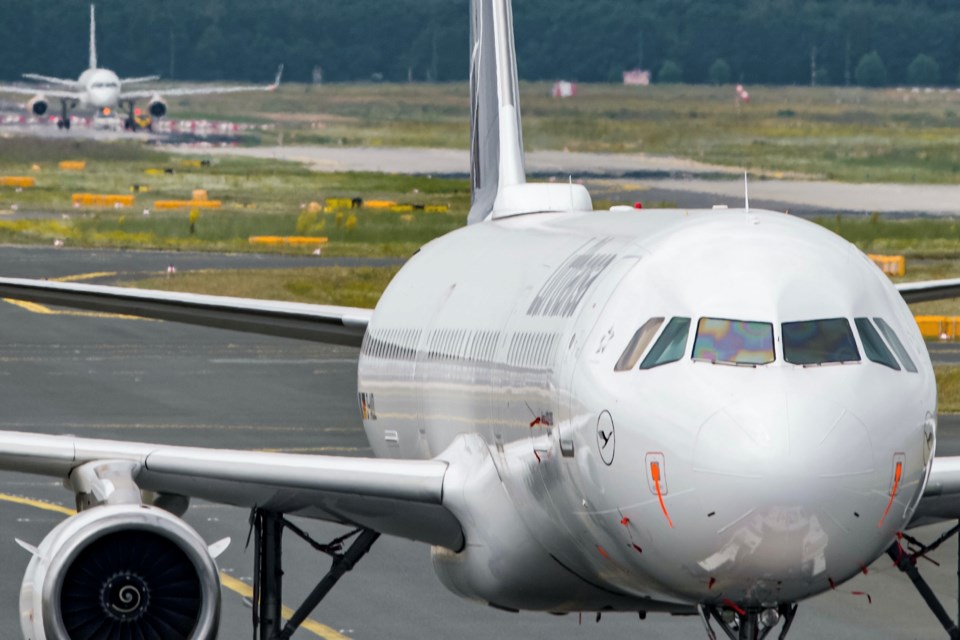The COVID-19 pandemic played a part in Springer Aerospace's current financial struggles, but it wasn't the only factor.
The company concedes mistakes were made leading up to its decision last week to seek protection from its creditors under the Companies' Creditors Arrangement Act.
"Springer in prior months has suffered from high turnover of employees due, among other things, to the departure of key management level staff, and long periods of downtime because of the shortage of parts and supplies," Christopher Grant, Springer's chief executive officer, said in an affidavit sworn last week and submitted as part of the company's 385-page application to Ontario's Superior Court of Justice.
"These employee-related issues are relatively recent and coincide with the disruption caused by COVID-19 shutdowns and the unusually active labour market in Canada post-COVID," Grant said.
"The COVID-19 pandemic contributed significantly to Springer’s financial challenges. The aviation and travel industries were seriously impacted by the COVID-19 shutdowns internationally. Many airlines laid off staff and grounded fleets."
"Accordingly, due to the decreased operation of aircrafts, Springer’s customers did not require the same levels of aircraft maintenance, repair and overhaul services, or aircraft painting services."
Grant says his company tried to soldier through the COVID-19 shutdowns, keeping its workforce on the job to avoid losing its highly skilled, much-valued staff.
"I believed that the aviation and travel industry would rebound and was worried that Springer would not be able to attract and hire skilled employees to relocate to northern Ontario in the future if we laid off our staff during COVID-19."
Springer has about 100 non-union workers.
They include:
- 50 engineers
- 25 office staff
- 10 managers
- about 15 independent contractors
Almost all Springer’s employees live in or around the Echo Bay area.
Those who aren't administrators are usually skilled tradespeople and engineers, many with obligatory certifications.
In his affidavit, Grant talks about the major expansion Springer undertook two years ago, including a $3-million hangar capable of sheltering two Boeing 737s.
"While the COVID-19 shutdowns have ceased, they exacerbated some of the operational issues that Springer faced."
"Prior to COVID-19, Springer expanded the business and managed to increase top-line revenue. However, given the timing of COVID-19 and the effective shutdown of the Canadian economy, the applicants were not able to implement the expansion as contemplated, with sufficient strategic planning."
"The efficiency of Springer’s business has suffered," Grant said.
"It has become evident to me in recent months that Springer does not have the right operational key performance indicators and supervisory tools to gauge the company’s overall financial performance or compare Springer’s performance with other businesses within the same sector."
"I believe the implementation of an appropriate performance management system will bring substantial productivity and profitability improvements."
Another mistake, Grant says, was the way Springer got the parts needed for its aircraft maintenance and refitting jobs,
"Springer has historically used a just-in-time system for parts and inventory that I have realized is vulnerable to supply chain interruptions and shipping delays."
"On the one hand, the just-in-time system avoids the need to stockpile inventory with the associated cost and waste."
"On the other hand, staff waiting for parts and supplies to continue work is inefficient, unprofitable, and damaging to morale."
"Springer’s business is dependent on the uninterrupted supply of goods and services, including for propane, paint and jet fuel."
"The delays and shortages of parts and supplies were caused in large part by global pandemic circumstances beyond Springer’s control. However, due to cash-flow pressures, Springer has also had to delay purchases to stretch available cash flow."
"In reviewing Springer’s performance, I have learned that staff downtime and the perceived shortage of parts and materials caused problems with staff morale and resulted in a high level of turnover within the organization."
"Employee turnover was not limited to skilled employees working in the hangars, the applicants also lost key members of its management team," Grant says.
Springer has been granted CCAA bankruptcy protection, preventing any legal actions against the company for the time being.
The firm has obtained $1.5 million in debtor-in-possession financing to continue operations and undergo restructuring.
Springer's largest obligation is to Caisse Desjardins Ontario Credit Union Inc., which seeks more than $5.7 million.
As SooToday reported earlier today, Springer has retained a chief restructuring officer from New York City, who will hold a face-to-face town hall meeting with its 100 employees on Tuesday.
Further SooToday coverage of this story will be posted sometime over the weekend.
